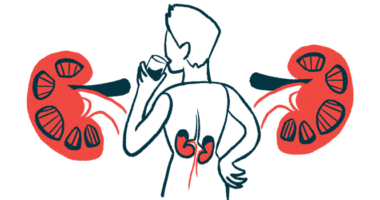Encaleret normalized blood and urine calcium levels in small study
Developer plans registrational clinical study of therapy in 2026

Treatment with Encaleret led to rapid normalization of both blood and urine calcium levels in a Phase 2 study involving people with chronic hypoparathyroidism.
Within five days of treatment initiation, 80% of participants achieved normal calcium levels, whereas none had achieved such levels with conventional therapy at the beginning of the study. Encaleret is an investigational therapy for hypoparathyroidism.
“Based on these encouraging findings, we intend to initiate a registrational clinical study of encaleret in chronic hypoparathyroidism in 2026,” Scott Adler, MD, chief medical officer of Calcilytix, a Bridgebio Pharma affiliate that is developing the medication, said in a Bridgebio press release.
Researchers from Calcilytix and the National Institute of Dental and Craniofacial Research (NIDCR) discussed the findings in the presentation, “The Oral Calcilytic Encaleret Reduced Urinary Calcium While Maintaining Blood Calcium in Individuals with Post-Surgical Hypoparathyroidism,” at the American Society for Bone and Mineral Research annual meeting this week.
Treating hypoparathyroidism can be complicated
In hypoparathyroidism, the parathyroid glands don’t produce enough parathyroid hormone (PTH), a chemical messenger that helps the body regulate calcium. With low PTH, calcium levels in the bloodstream fall, and the kidneys excrete excess calcium in urine.
Calcium imbalances can cause problems in several organs and tissues. Low calcium levels in the blood can disrupt neurological signaling, leading to symptoms such as muscle spasms and brain fog. High calcium in urine may negatively affect kidney function and lead to kidney stones.
Treating hypoparathyroidism can be complicated because therapies need to balance blood and urine calcium. To avoid too much calcium in the urine and kidney problems, standard treatment with calcium and active vitamin D usually aims for the lower end of normal blood calcium, which can still cause some low calcium symptoms.
“Unfortunately, not all patients are able to achieve this balance, and many still struggle – some with the disruptive symptoms of low blood calcium, and others with persistently high urine calcium,” said Iris Hartley, MD, a researcher for NIDCR involved in the clinical trial.
Moreover, PTH-based treatments need daily injections and refrigeration, which can be inconvenient for many patients.
Encaleret inhibits activity of calcium-sensing receptor
Encaleret, a calcilytic medication, is a compound that selectively inhibits the activity of the calcium-sensing receptor (CaSR), a protein that helps the body detect calcium levels. Reducing CaSR signaling essentially sends the message that calcium levels are too low. Bridgebio expects this to engage the body’s natural calcium regulation mechanisms, raising blood calcium and lowering urine calcium.
In people with intact parathyroid glands, calcilytics make the glands release more PTH, reduce calcium lost in urine, and increase blood calcium. By giving calcilytics to people with hypoparathyroidism due to surgery that damaged or removed the parathyroid gland, the researchers wanted to understand how blocking the calcium receptor affects the body without PTH and explore whether calcilytics could help treat this condition.
In their Phase 2 trial (NCT05735015), the researchers tested encaleret in nine people with chronic hypoparathyroidism. Participants received 162 mg of encaleret twice daily for five days.
During this time, average blood calcium increased significantly from 8.5 mg/dL to 9.1 mg/dL. The amount of calcium excreted in urine also decreased significantly, from 388 mg per day to 158 mg per day.
New results from this study are very promising, suggesting a potential path for improved calcium control in a convenient pill form.
These changes brought 80% of participants within normal blood and urine calcium ranges by the end of the five-day treatment. Before starting encaleret, none of the participants were within these ranges.
If larger trials continue showing positive results, encaleret may offer an alternative to current treatments.
“There is a clear need for better options,” Hartley said. “New results from this study are very promising, suggesting a potential path for improved calcium control in a convenient pill form.”
Bridgebio is also developing encaleret for a rare genetic form of hypoparathyroidism called autosomal dominant hypocalcemia type 1 (ADH1). In ADH1, CaSR becomes overly sensitive and changes its signaling patterns. This suppresses the release of PTH from the parathyroid glands, leading to low blood calcium levels.
The company is sponsoring the Phase 3 CALIBRATE trial (NCT05680818), which is testing encaleret against standard supplements in people with ADH1.








